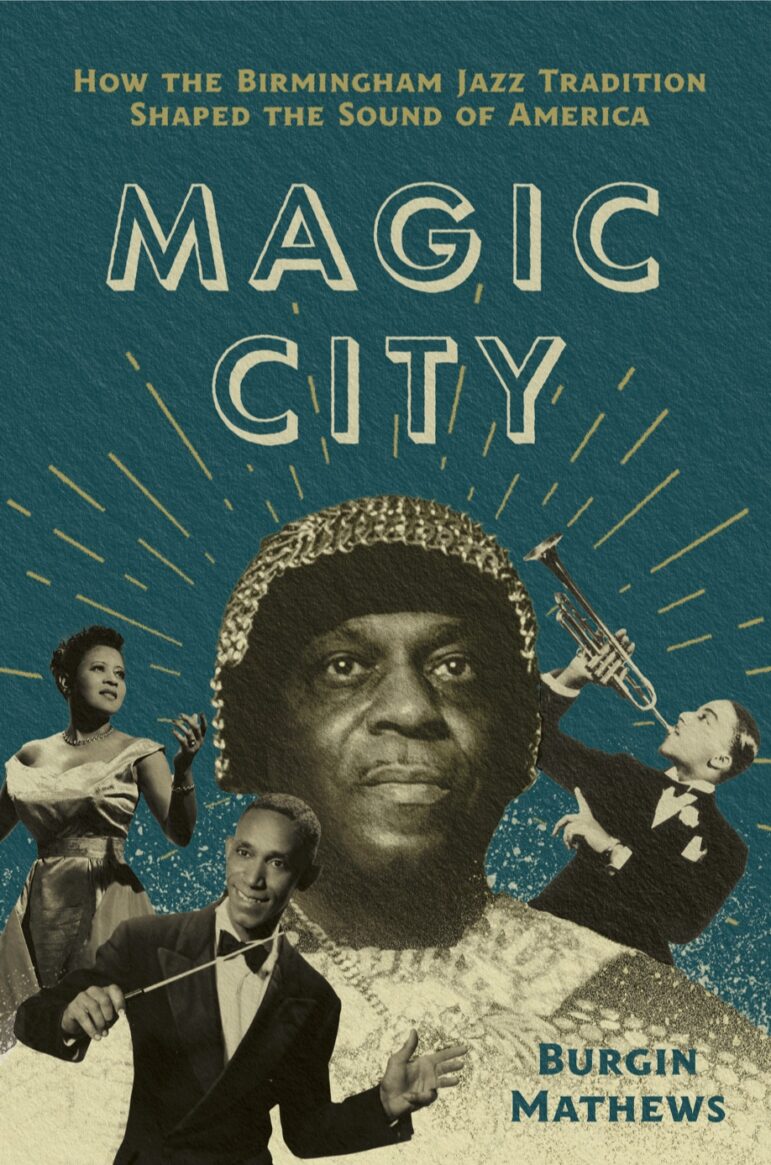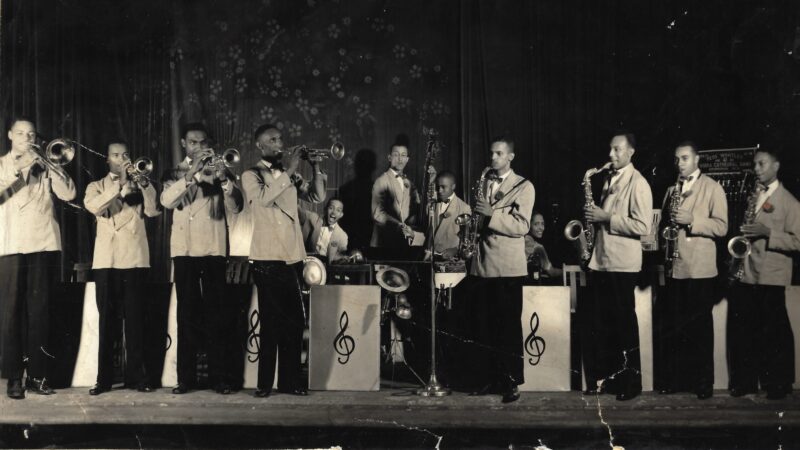Why Birmingham is overlooked when it comes to jazz
Jazz is associated with cities such as New Orleans, Chicago and New York. But Birmingham has had profound influence on the genre too. That’s the argument from a recent book called Magic City: How the Birmingham Jazz Tradition Shaped the Sound of America. The book’s author, Burgin Mathews, spoke with WBHM’s Andrew Yeager.

The central figure in Birmingham’s jazz story is this man named John “Fess” Whatley. Who was he?
Fess Whatley was a educator here in Birmingham and a musician and bandleader. Fess was his nickname, short for a professor. He was hired by Industrial High School in 1917 to teach printing at that school. Of course, today [it] is Parker High School. But he remained there into the 1950s. And in that time he instituted this hugely influential instrumental music program, which produced just legions of musicians who went out in particular into the world of jazz and, as this book talks about, helped shape the sound and the culture of jazz as we know it.
So he had this idea that music could be the pathway to a career. Give me a sense of where some of his students ended up.
His students ended up everywhere. Fess Whatley had this very rigid discipline that was founded in the reading of music, so that students could read any printed score and play it immediately. Fess Whatley students could typically play more than one instrument, so their value to a band doubled. They were trained in professional decorum and discipline and punctuality and dress and all of these elements that we might not even think of as strictly musical. They were all part of the musicians union before they graduated from high school.
And so Fess Whiteley’s rise coincided with the rise of the big bands. And in the era of the big bands, you had to be able to read anything that was put in front of you and to fit right into the saxophone section or trumpet or trombone section. And it was an often repeated kind of adage that if you came from Birmingham, you didn’t have to audition for a band. And I’m talking about the bands of Duke Ellington and Cab Calloway and Earl Hines and Count Basie and Billie Holiday, they all had in their bands, Birmingham musicians.
I’m thinking back to that big band era. Take me to Birmingham at that time. What was the atmosphere like?
Well, of course Birmingham was deeply, deeply segregated and it was in fact the culture of segregation that helped shape the culture of this music. And on Fourth Avenue North, that space was really the heart of this black cultural musical scene in Birmingham.
You mentioned this was all under segregation. And these are black performers, black musicians. Who was in the audience?
That is a complicated question. Typically out on Fourth Avenue, that was an African American space. And so the audiences were African American. There was some overlap in the sense that Fess Whatley as a bandleader, was the preeminent bandleader for dances both in Birmingham’s black and white social elite sets. So Fess Whatley and his musicians were playing dances at the Masonic Temple on Fourth Avenue, but they were also playing for the Birmingham Country Club. They were playing in white spaces as well as Black spaces. Sometimes venues might have special events in which white audiences were invited into these Black spaces, again under the strict kind of setup of a segregated space, to witness those musicians. In large part, however, the deep pervasiveness of segregation was creating very separate musical worlds.
When we think about cities associated with jazz, New Orleans comes to mind. Chicago, Kansas City, New York. Why isn’t Birmingham in that mix?
That is a great question, and I think there’s a few reasons for that. One is that the nature of the Fess Whatley training was such that a lot of Birmingham’s influence came sort of from the sidelines of jazz. We have a couple of big names from Birmingham, Erskine Hawkins and Sun Ra. But we have innumerable musicians who came from here but played on the sidelines of the bands.
I think Birmingham is left out of the story because a lot of its influence comes also from teachers like Fess Whatley. But when we talk about jazz it’s rare that we make teachers the center of the story.
And also Birmingham musicians did have to leave the city to really make their names in jazz. So a lot of musicians ended up in Chicago or New York or other places, and there made their careers. Birmingham itself did not become kind of a central hub where someone would go to make their career. Instead, I think the Birmingham Jazz story is part of the story of the Great Migration. These students, these musicians took the training that they developed here in Birmingham and the sounds that they developed here in Birmingham, and they used that as their ticket to other places.
At least 43 dead in catastrophic Texas flooding and dozens missing from girls camp
Flash flooding slammed the Texas Hill Country overnight on Friday. At least 27 girls from a summer camp next to the Guadalupe River remain missing.
How this long-lost Chinese typewriter from the 1940s changed modern computing
The concepts in the MingKwai typewriter underlie how Chinese, Japanese and Korean are typed today. The typewriter, patented in 1946, was found last year in an upstate New York basement.
North Korea has a new luxury beach resort. But the country isn’t open to most tourists
North Korean leader Kim Jong Un said he wants the luxury resort on the eastern seacoast to become a "world destination," but the country has been reluctant to allow in foreign tourists.
Mariska Hargitay walks a fine line in ‘My Mom Jayne’
It's natural to feel some skepticism when a celebrity makes a documentary about their own family. But Law & Order star Mariska Hargitay' tells a story that is both effective and empathetic.
Ukraine says it struck a Russian airbase as Russia sent drones into Ukraine
Ukraine said it struck a Russian airbase on Saturday, while Russia continued to pound Ukraine with hundreds of drones overnight, dashing hopes for a breakthrough in efforts to end the war.
Will Trump’s megabill help Democrats win the House?
Democrats feel that Trump's tax and spending bill gives them an opening ahead of the 2026 midterms. But if they want to win back the House, they're going to have to get their own house in order first.









